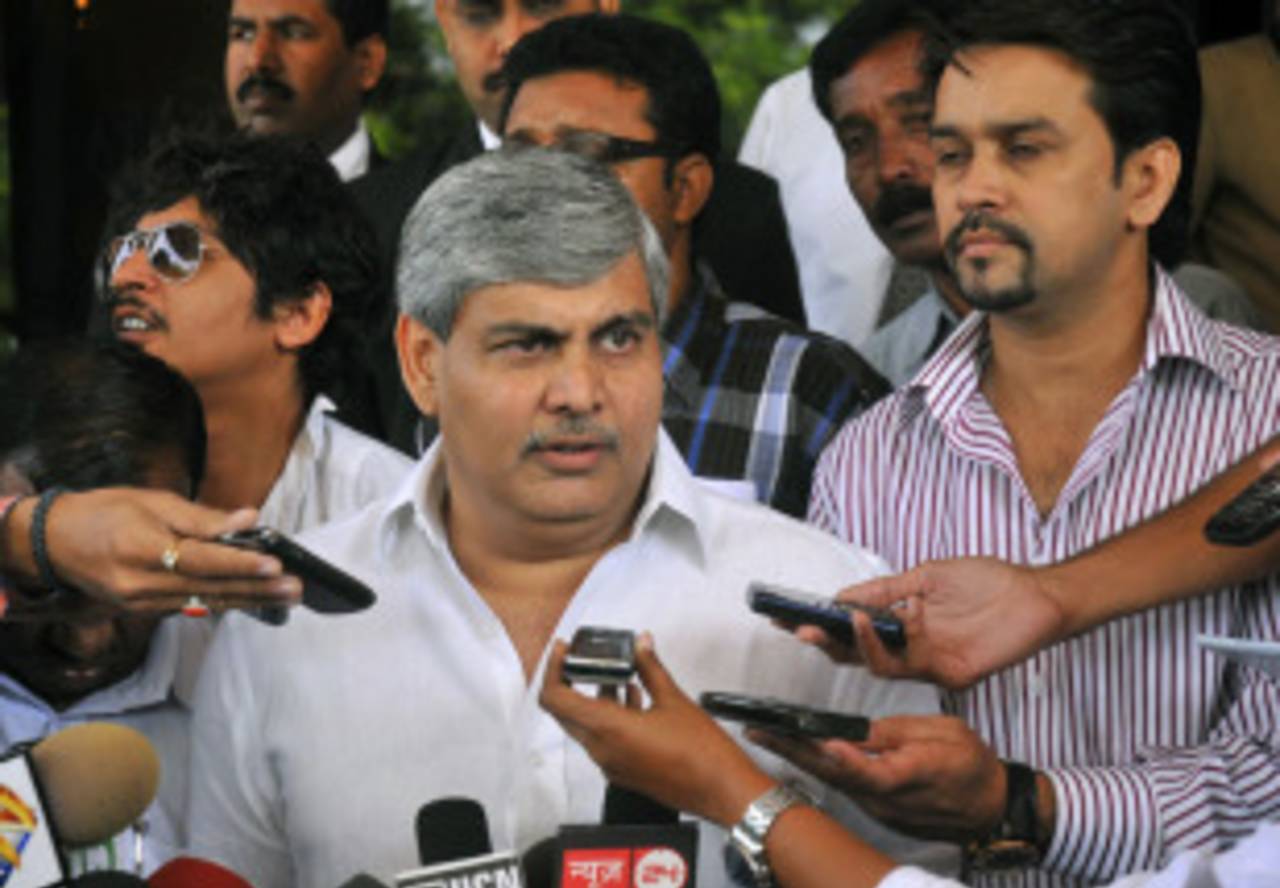Cricket officials are public servants, rules India's Supreme Court
In a ruling that has widespread repercussions for cricket administration in India, the Supreme Court has upheld a Kerala High Court decision that the officials of the Kerala Cricket Association (KCA) are public servants
Tariq Engineer
01-Feb-2011

The ruling has implications for the BCCI and its officials as well • AFP
In a ruling that is likely to have widespread repercussions for cricket administration in
India, the Supreme Court has upheld a Kerala High Court decision that the
officials of the Kerala Cricket Association (KCA) are public servants. The
court's decision means that officials who are part of a private body, but
perform what can be considered a public function, can now be tried under the
Prevention of Corruption Act, 1988, which applies only to public servants.
It is the first time the courts have taken such a view of sports
administrators in India.
A two-justice bench comprising Justice VS Sirpurkar and TS Thakur dismissed
an appeal filed by the KCA president, TR Balakrishanan, and secretary, TC
Matthew, who had challenged the High Court's decision allowing them to be
prosecuted under the act. The judges first heard the case on January 3,
before adjourning it for three weeks as the association wanted more time to
file additional documents. The case was finally dismissed yesterday, with
the judges calling the High Court's decision a 'beautifully crafted
judgement'.
Justice M Shashidharan Nambiar, who passed the High Court order, sought to
establish whether the officials fall under the definition of public servant
as laid out in the act. The KCA had argued that it was a private body
similar to a club, and therefore did not come under the purview of the act.
In its order, the High Court observed that the KCA had a monopoly on cricket
in the state and performed a public duty and a public service, and so was
liable to be prosecuted under the act.
"It [the decision] has far reaching consequences," Matthew told
ESPNcricinfo. "In sports associations, people may fight, and those who are
defeated may go to court. It opens a Pandora's Box. People can take
vengeance in vigilance courts. Nothing will progress. Honest people will not
come to work for associations like this."
One such association is the BCCI, of which the KCA is a member. The Indian
board has consistently held it is a private organisation and not accountable
to the public, but the ruling opens the door for anyone to challenge its
officials and those of other cricket associations around the country.
The complainant, Balaji Iyengar , a chartered accountant and former Kerala
junior cricketer, had filed the original complaint against the KCA in the
Vigilance Court two years ago. The court ruled in favour of the KCA, saying
its officials were not public servants, but Iyengar challenged the ruling
in the High Court.
"So far sports associations in India have had responsibility without
accountability," Iyengar said. "Hopefully this will usher in an era of
responsibility with accountability."
Tariq Engineer is a senior sub-editor at Cricinfo